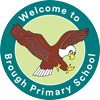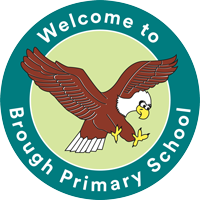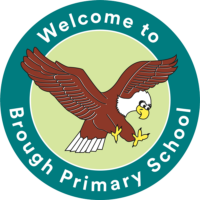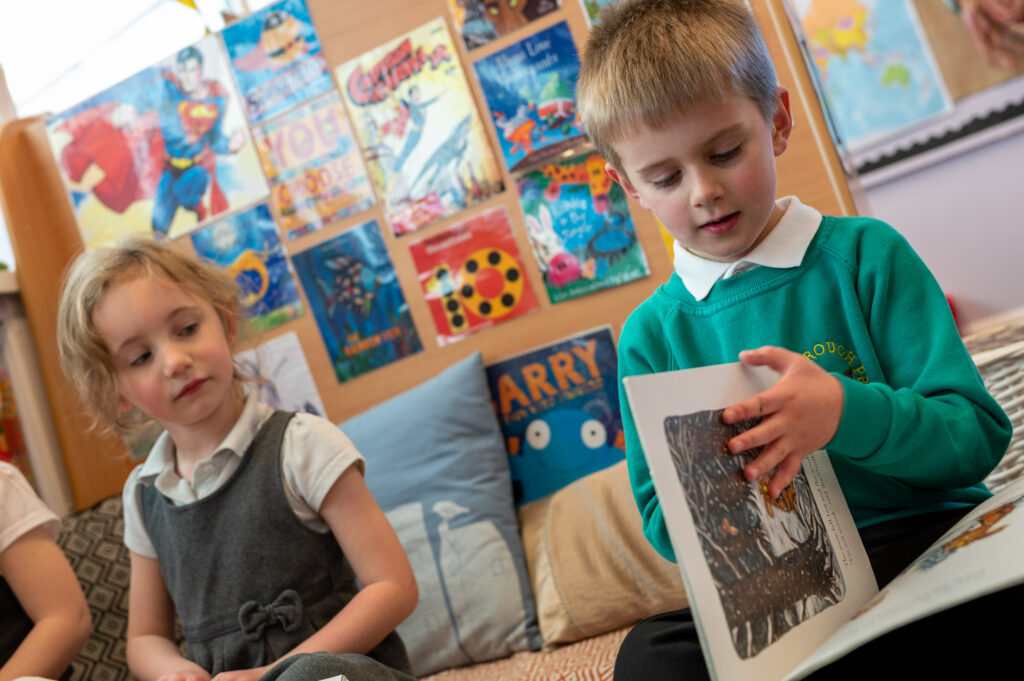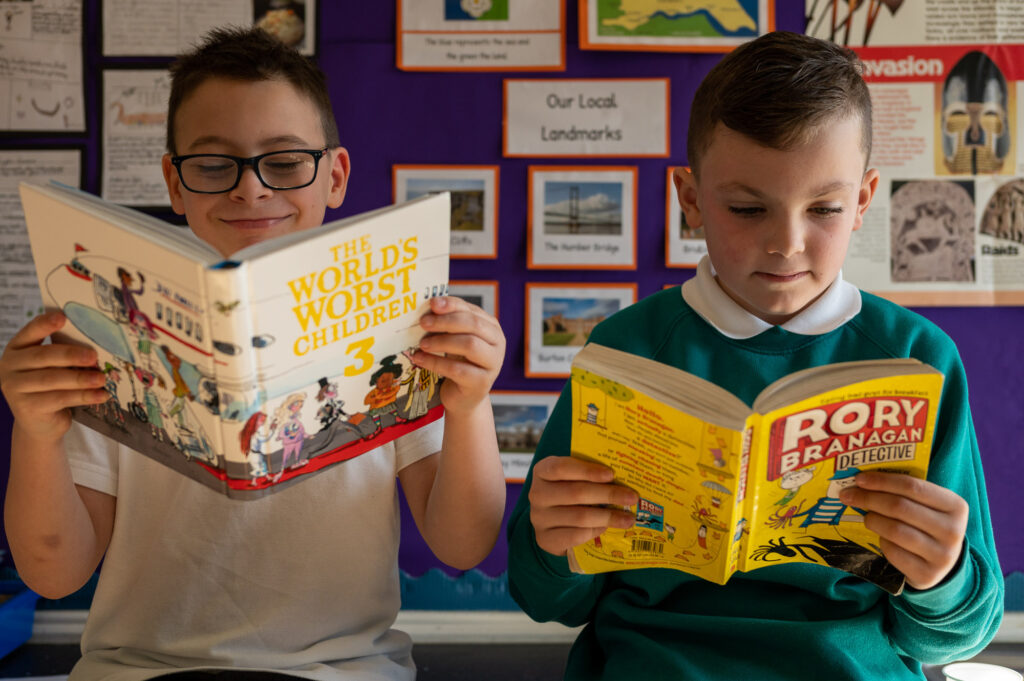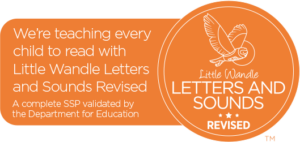Teachers create a positive reading culture in school, so that it is enjoyed by all pupils. Pupils in EYFS and KS1 have daily phonics sessions, following a systematic synthetic phonics programme. We use Little Wandle Letters and Sounds as our validated phonics scheme.
There is a combination of a whole class and carousel guided reading sessions in KS1 and whole class guided reading sessions in KS2 where reading comprehension skills are explicitly taught, practised and consolidated for mastery. Texts are often chosen to increase the children’s knowledge and understanding of the topics being taught in History, Geography and Science.
We use book banded reading books that include fiction, non-fiction and poetry titles to ensure books are at the appropriate level for children so they can develop and practise their reading skills.
Children are encouraged to read independently and regularly to grow their enjoyment in reading whilst also developing their vocabulary through the texts they read and have had read to them. We maximise opportunities for pupils to read across the curriculum. Teachers read regularly to their class as part of a non-negotiable story time session..
Phonics
Reading and spelling walk hand in hand together; segmenting and blending are inverse operations. Therefore, we use the Little Wandle phonics programme to teach both throughout the school.
The children are taught to both read and spell through explicit teaching and practice of a variety of skills and concepts:
Skills
• Blending
• Segmenting
• Phonic Manipulation
Concepts
• letters are symbols that represent sounds
• sounds can be spelled using 1,2 3 or 4 letters
• the same sound can be spelled in more than one way (rain, break, gate, stay)
• many spellings can represent more than one sound (head, seat, break)
